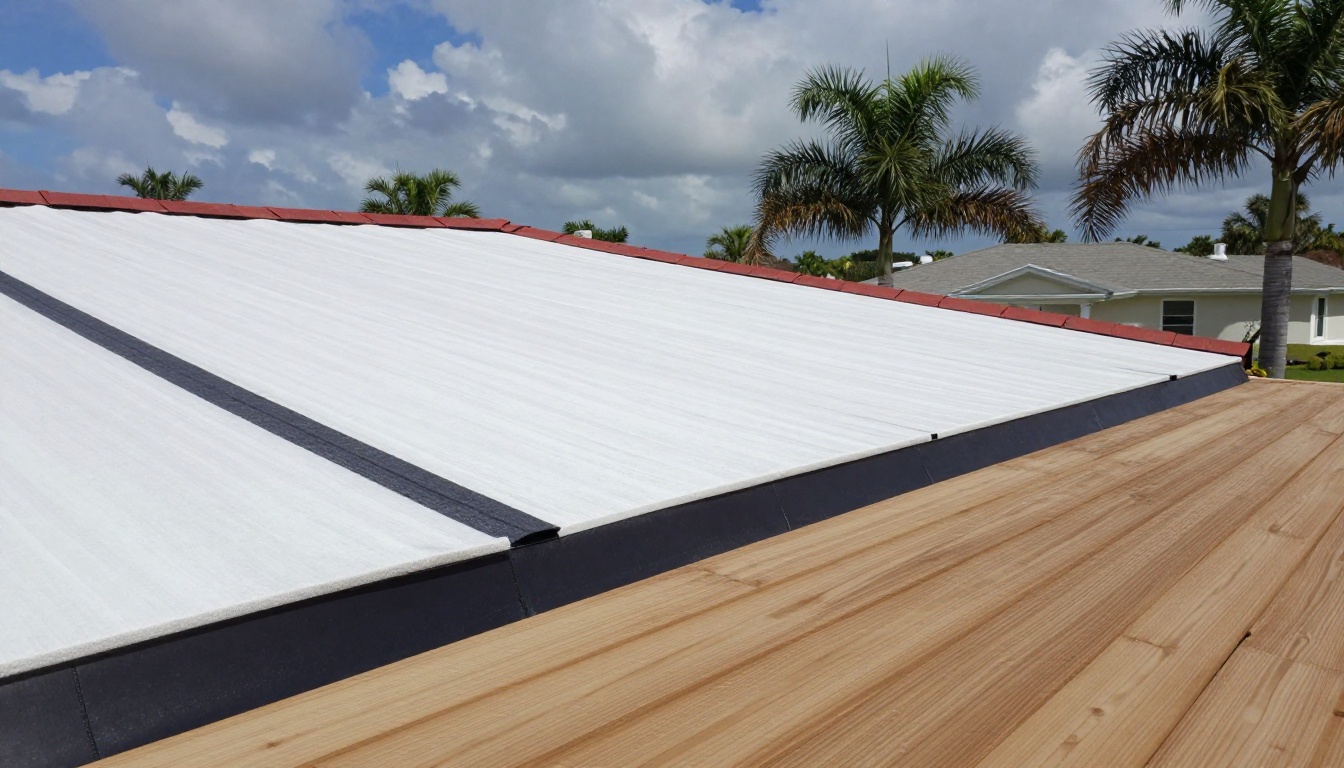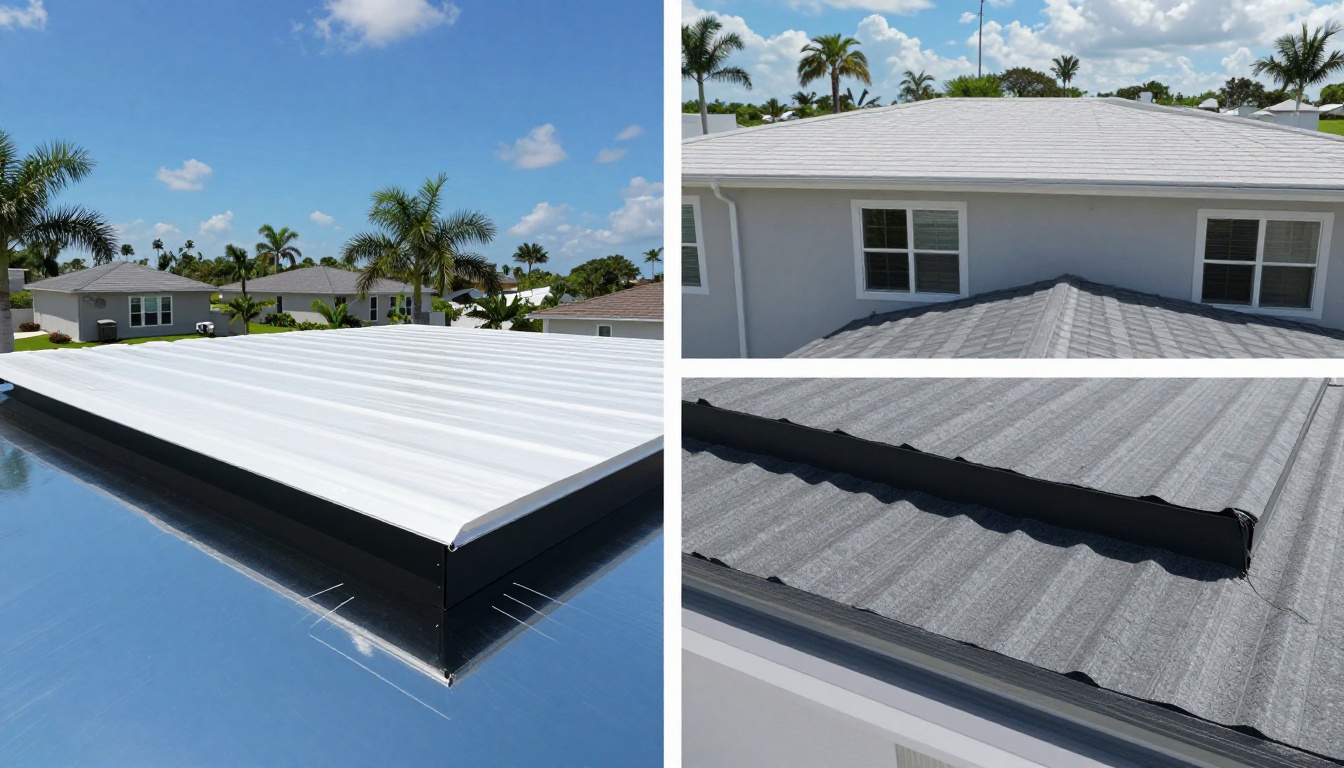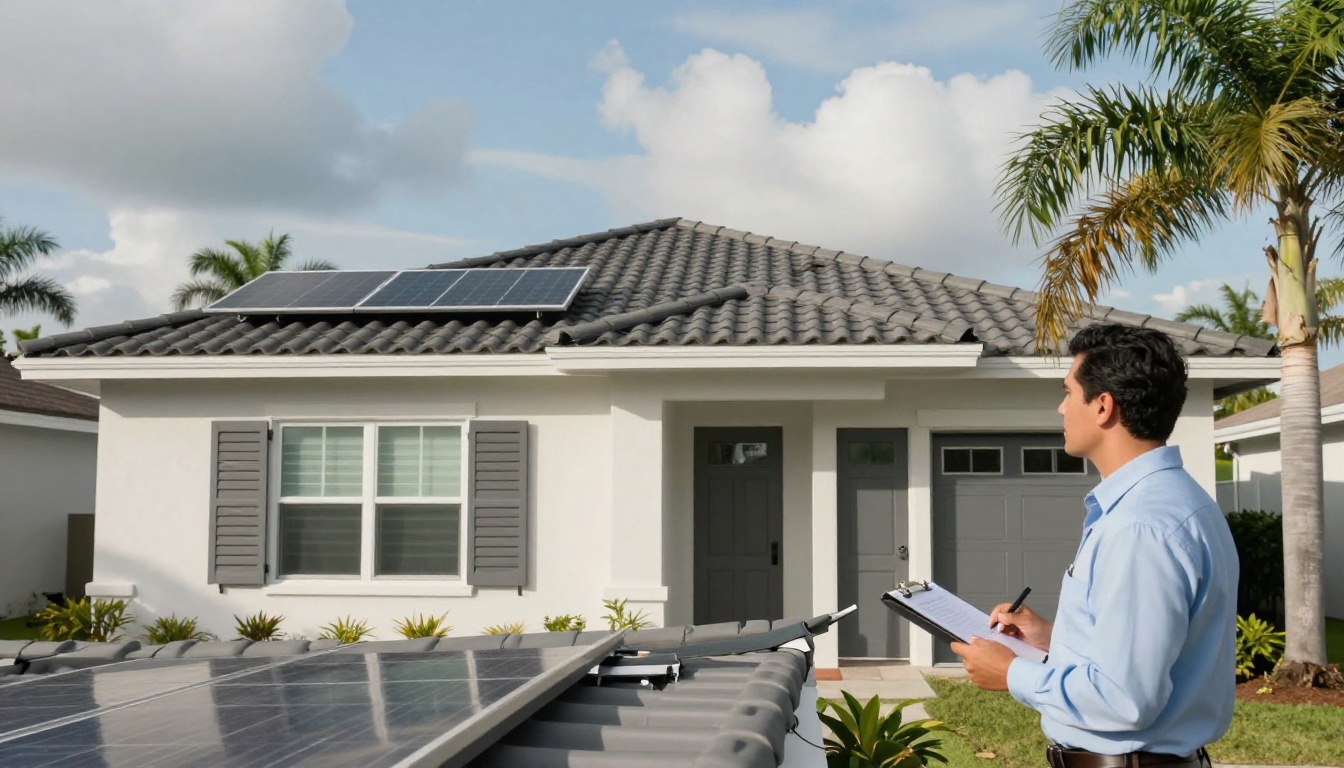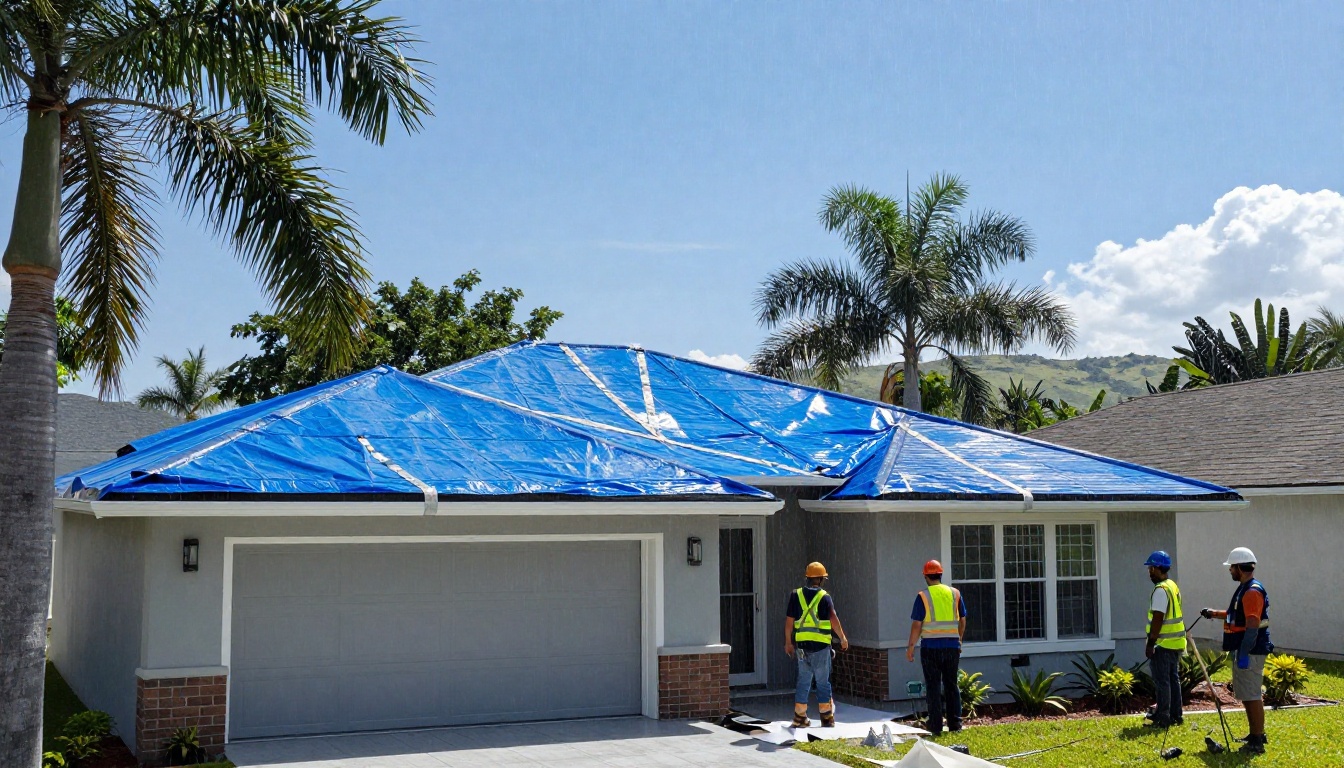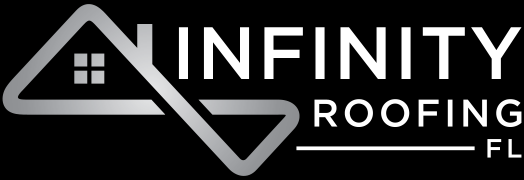What to Look for in a Roofing Contract in Florida
What to Look for in a Roofing Contract in Florida
Why Roofing Contracts Matter in Florida
In Florida, where unpredictable weather and strict building regulations are the norm, a written roofing contract is more than just a formality—it’s a necessity. A well-drafted contract provides clarity by outlining the expectations of both the homeowner and the contractor. This ensures that everyone is on the same page from the start, reducing the likelihood of misunderstandings or disputes. With hurricanes and storms being common , having a clear agreement can also help prepare for unexpected challenges.
Beyond clarity, a roofing contract serves as a legal safeguard. It protects homeowners from unscrupulous practices and gives contractors a framework to deliver their services effectively. In Florida’s high-risk environment, a solid contract isn’t just about compliance; it’s about peace of mind. When both parties understand their roles and responsibilities, the project is more likely to proceed smoothly and successfully.
Required Contractor Licensing and Legal Compliance
Florida law requires roofing contractors to hold specific licenses , which ensure they meet industry standards and have the skills necessary to perform the job. A valid license should be clearly stated in the contract, along with proof of compliance with state regulations. Hiring an unlicensed contractor can lead to serious legal and financial consequences, including fines or subpar workmanship.
Additionally, contractors must avoid engaging in activities like public adjusting without proper certification. Failing to adhere to these legal requirements can render a contract unenforceable, leaving homeowners vulnerable. By ensuring the contractor is licensed and compliant, you protect yourself from potential liabilities and ensure the project aligns with Florida’s stringent building codes.
Accurate and Detailed Scope of Work
A detailed scope of work is one of the most critical components of any roofing contract. This section should explicitly outline every task the contractor will perform, from removing old materials to installing new shingles. Without this clarity, there’s room for misinterpretation, which can result in incomplete work or unexpected costs. Ambiguity in the scope of work often leads to disputes that could have been avoided with clear documentation.
Furthermore, the scope of work should include specifics such as cleanup procedures and disposal of debris. By addressing these details upfront, you minimize the risk of misunderstandings later on. A comprehensive scope of work not only sets expectations but also serves as a benchmark for evaluating the contractor ’s performance throughout the project.
Materials Specifications: Quality, Brand, and Type
The contract should specify all roofing materials by brand, model, color, and quality grade. This ensures transparency and prevents contractors from using substandard products that may compromise the roof’s durability. For example, details about shingles, flashing, underlayment, and fasteners should be explicitly listed so there’s no confusion about what will be installed.
By defining material specifications, homeowners can verify that the products used align with their expectations and budget. It also allows for easier comparison when shopping around for quotes. Ultimately, clear material descriptions empower homeowners to make informed decisions and hold contractors accountable for delivering exactly what was promised.
Project Timeline, Milestones, and Scheduling
A well-defined timeline is essential for managing expectations and minimizing disruptions during a roofing project. The contract should include a start date, estimated completion date, and milestones marking key phases of the work. This helps homeowners plan accordingly and ensures the contractor adheres to a reasonable schedule.
It’s equally important to address how delays will be handled, especially given Florida’s unpredictable weather patterns. Whether it’s rainstorms or supply chain issues, the contract should outline procedures for extending deadlines or compensating for setbacks. Clear scheduling provisions benefit both parties by keeping the project on track and reducing stress.
Itemized Pricing, Payment Terms, and Change Orders
The pricing section of a roofing contract should break down costs in detail , listing labor, materials, permits, and other expenses separately. This transparency helps homeowners understand where their money is going and avoids sticker shock later on. Additionally, payment terms—such as deposit amounts and installment schedules—should be clearly defined to prevent disputes over finances.
Change orders are another crucial element to include. These documents record any modifications to the original agreement, such as additional work or upgraded materials, along with their associated costs. By documenting changes formally, both parties can agree on adjustments before they’re implemented, maintaining trust and accountability throughout the project.
Insurance and Liability Coverage
Roofing contracts must specify the types of insurance coverage held by the contractor , including general liability and workers’ compensation. This protects homeowners from liability in case of accidents or injuries on the job site. Without adequate insurance, you could face significant financial risks if something goes wrong during the project.
Homeowners should also check whether their own insurance policies cover damage caused by roofing work. Including these details in the contract ensures that everyone understands their responsibilities and protections. Proper insurance coverage is a non-negotiable aspect of any roofing agreement, providing security for both parties involved.
Warranty Details: Materials and Workmanship
Rooftop warranties come in two main types: manufacturer warranties, which cover defects in materials, and contractor warranties, which guarantee the quality of workmanship. The contract should clearly state the duration and coverage of each warranty, as well as any exclusions. Understanding these terms helps homeowners know what to expect if problems arise after the project is completed.
Equally important is knowing how to invoke warranty claims. The contract should explain the process for filing a claim and who is responsible for addressing issues. By reviewing warranty details carefully, homeowners can ensure long-term protection for their investment and avoid unpleasant surprises down the road.
Permits and Local Code Compliance
The contract must specify who is responsible for obtaining necessary permits and provide information about the issuing authority and permit validity periods. Adhering to local building codes is critical in Florida, where structures must withstand extreme weather conditions. Ensuring permits are properly secured protects homeowners from penalties and ensures the work meets safety standards.
Dispute Resolution and Contract Termination Clauses
Every roofing contract should include mechanisms for resolving disputes, such as mediation, arbitration, or court action. These clauses outline steps for addressing disagreements fairly and efficiently, preventing conflicts from escalating unnecessarily. Knowing how disputes will be handled adds an extra layer of security for both parties.
Similarly, the contract should define the conditions under which either party can terminate the agreement. Whether due to unsatisfactory performance or unforeseen circumstances, the termination clause should clarify the process and any associated consequences. Having these provisions in place ensures that both parties can exit the contract responsibly if needed.
Architectural, Structural, and Mechanical Considerations
For complex roofing projects, the contract might need to address architectural, structural, or mechanical considerations unique to Florida. This could include wind uplift requirements, penetrations for HVAC systems, or load-bearing capacity adjustments. Incorporating these details ensures the roof meets both aesthetic and functional needs while complying with state-specific regulations.
Signatures and Execution of Contract
To make the contract legally binding, all parties must sign and date the document. This step confirms mutual agreement and understanding of the terms outlined within. Without proper execution, the contract lacks enforceability, leaving both parties exposed to potential risks.
Frequently Asked Questions About Roofing Contracts in Florida
What should be included in a Florida roofing contract?
A Florida roofing contract should include the contractor ’s license, detailed scope of work, specified materials, insurance coverage, itemized pricing, project timeline, warranty details, permits, and dispute resolution mechanisms. These elements collectively ensure transparency and protect both parties throughout the project.
Is a roofing contract legally required in Florida?
While not every roofing job legally requires a written contract, larger projects typically do under Florida law. Regardless of size, having a written agreement is highly recommended to document expectations, protect against fraud, and comply with regulatory standards.
Can I cancel a roofing contract after signing in Florida?
Under Florida law, homeowners generally have a three-day right of rescission for residential roofing contracts. To cancel, follow the procedures outlined in the contract, which may involve submitting a written notice within the specified timeframe. Always review cancellation terms carefully before signing.
What are warning signs of a bad roofing contract?
Red flags in a roofing contract include missing license or insurance details, vague pricing, unclear scope of work, lack of warranty terms, or refusal to provide references. These omissions often indicate poor professionalism and increase the risk of future complications.
Do I need special permits for roofing in Florida?
Most roofing projects in Florida require municipal permits, which ensure compliance with local building codes. Typically, the contractor is responsible for obtaining these permits, but the contract should clearly state who handles this task.
Conclusion
A well-crafted roofing contract is an indispensable tool for Florida homeowners, offering both legal and financial protection. By thoroughly reviewing every section—from licensing and materials to warranties and dispute resolution—you can safeguard your property and investment. Verifying contractor credentials and seeking clarification on unclear terms are essential steps before signing.
Insist on transparent, complete contracts for every roofing project, and don’t hesitate to consult professionals if you’re unsure. Understanding what to look for in a roofing contract in Florida is the first step toward a successful, hassle-free installation or repair. Remember, a little diligence now can save you from costly headaches later.
Take the time to review your roofing contract carefully, ask questions, and seek expert advice if needed. Doing so will help ensure your roofing project runs smoothly and delivers lasting results.
